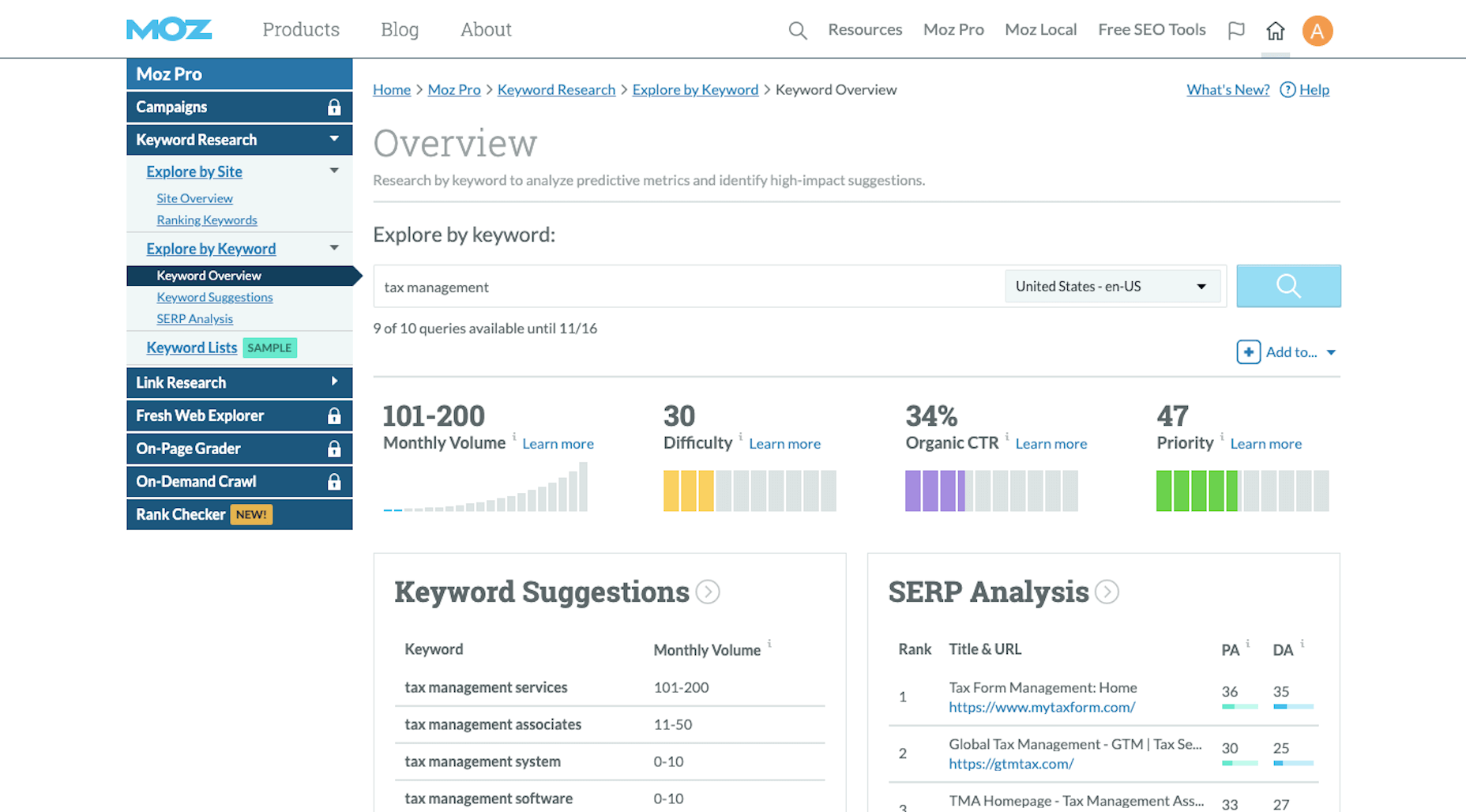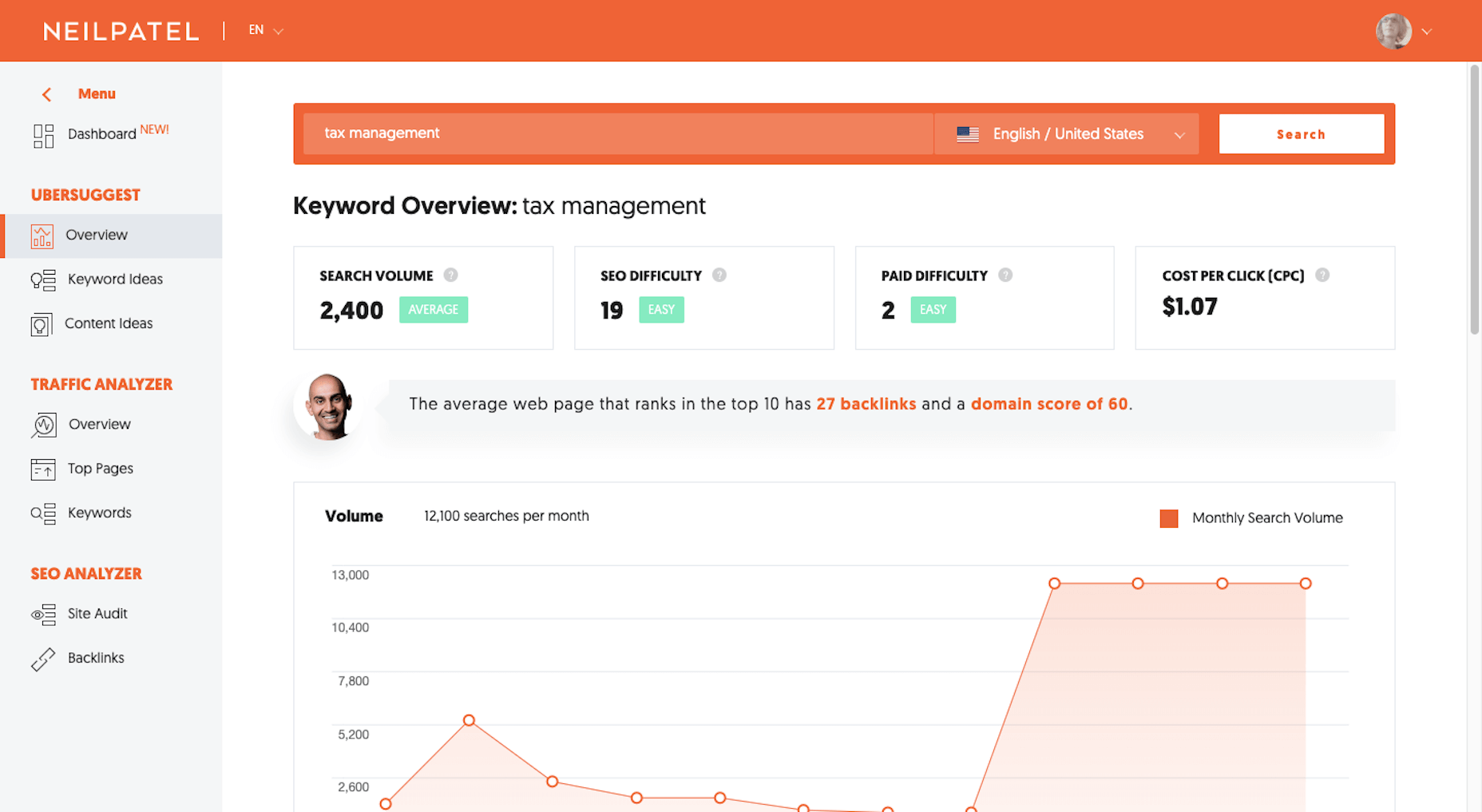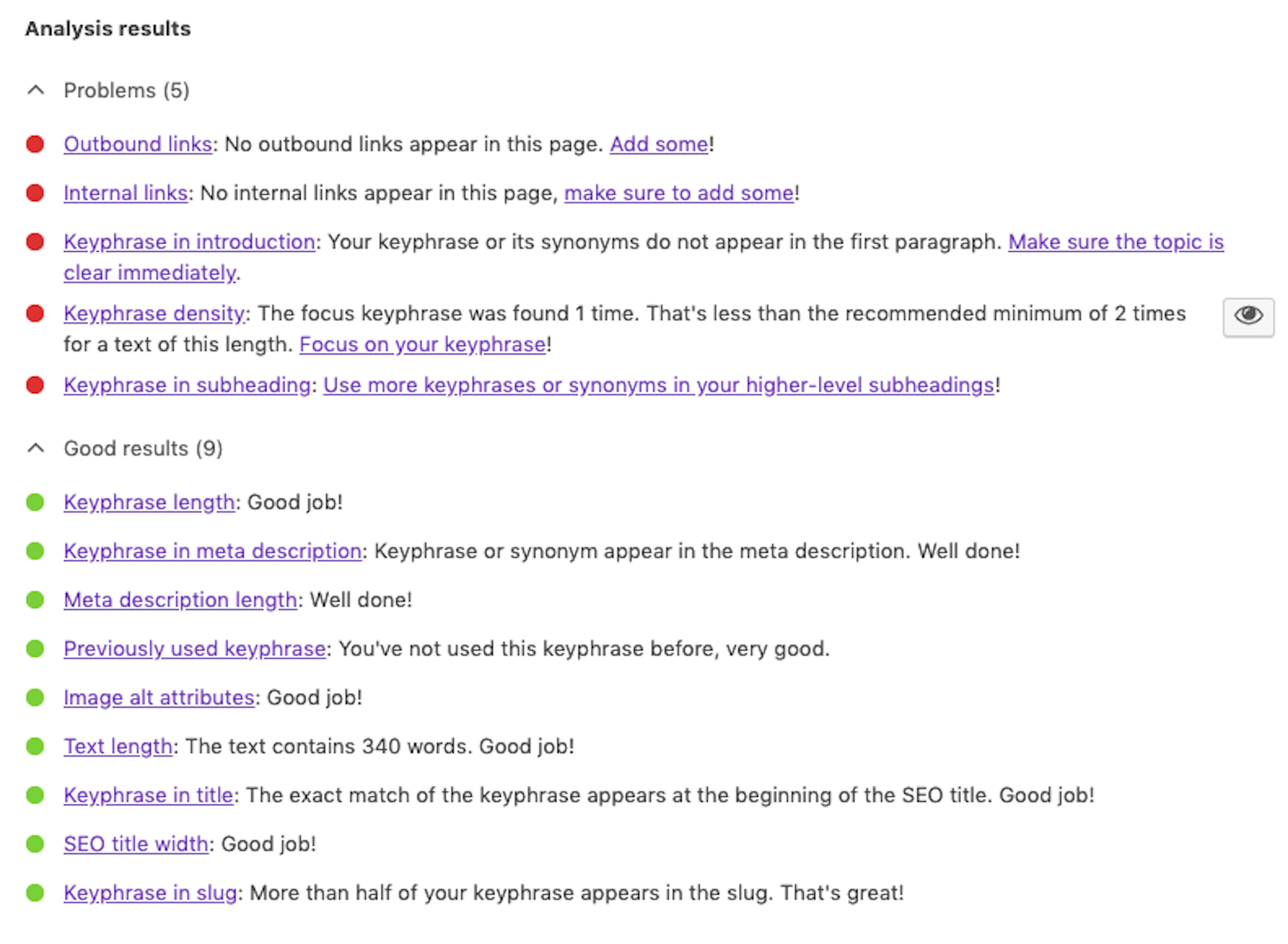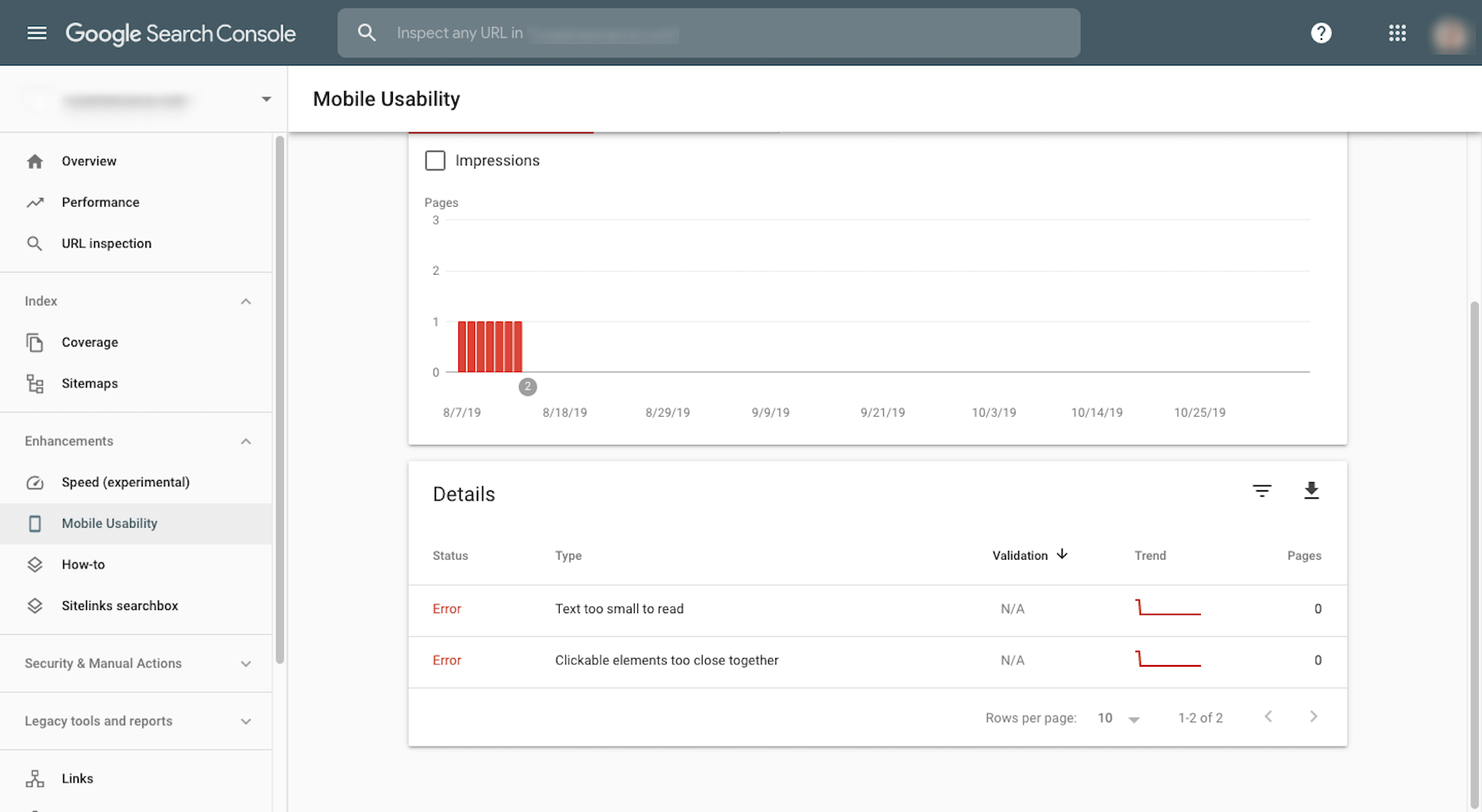SEO tools for web designers are a necessary tool to know, even if you’re not a SEO expert.
It’s true: the best way to optimize your site for search engines is to hire someone who knows how to do it well. But the second-best way is to know what you’re doing and be able to do it yourself.
That’s where these SEO tools come in. They’ll help you identify issues with your site that could be preventing it from ranking higher in search results and help you fix them so that your clients’ sites perform better and bring in more traffic.
Seo Tools For Web Designers
There’s a lot of overlap between SEO tools, which is why it can be so difficult figuring out which is the best to use. To simplify things, I’ve selected the 4 SEO tools that will seamlessly integrate with your design workflow and won’t break your budget.
You already have a ton of tools in your web design toolbox which is why I’m reluctant to write this post the way I would for copywriters and SEO pros. Why? Well, because there are literally dozens of SEO tools you could add to your workflow. Unless you’re promising clients that their websites will go to #1 in search results for every keyword they want to win, there’s no reason to add that kind of complexity to your life.
That said, you can’t completely ignore SEO. No one is going to shell out money for a web hosting plan, domain name, and professional web design services and not expect results in return. But before your client’s website can start capturing leads and sales, it needs organic search traffic — which is why you’ll need some SEO tools and strategies to help you out.
Today, I’m going to introduce you to the best SEO tools for web designers.
Moz: The Best Premium SEO Tool
There’s a lot of really good competition out there when it comes to premium SEO tools, but Moz is the clear winner as far as web designers are concerned.

One of the things that’s great about using Moz for SEO is that it comes with a free toolbox. Whether you need an introduction to search engine optimization or simply want to give a premium SEO tool to try, the toolbox will do the trick.
With free Moz tools, you can do things like:
- Research possible keywords;
- Analyze the rankability of your domain;
- Review your current keywords (regular and branded);
- See if you’ve earned any featured snippets, backlinks, and more;
- Snoop on the competition’s website and ranking keywords.
Of course, if you make the upgrade to Moz Pro, you gain access to more powerful SEO tools, like:
- Technical website audits;
- Backlink analysis;
- Missing keyword opportunities;
- Local SEO strategies;
- SERP rankings for desktop, mobile, and local.
And it’s all laid out in an intuitive dashboard.
A WORD ABOUT THE COMPETITION
Mangools, Ahrefs, and SEMrush are all fantastic options if you’re trying to build higher-ranking websites and to scale up your SEO offering for clients. However, these are all truly premium solutions, so unless you’re prepared to use every feature these pay-to-play tools offer, it’s probably not worth it to open your wallet for them.
Ubersuggest: The Best Free SEO Tool
You’re probably wondering if any of the leading SEO tools are available for free. There are a few, but Neil Patel’s Ubersuggest is by far the best of the litter.

What’s really nice about this tool is that, although it’s simple enough to use, you can put it to work for you in a number of ways.
For example, you can use the site audit tool to review current clients’ websites. If you’re looking for a conversation starter, this could be your ticket in. You’ll have insights on how well or poorly their website has done in terms of SEO, get suggestions on how to improve, and even be able to see their site speed while you’re at it.
You could also use this tool for basic keyword research and recommendations, which would make it especially helpful in earlier planning stages. Or take it to the next level and assess what’s going on in your clients’ competitive markets.
Yoast: The Best WordPress SEO Tool
For those of you that design websites using WordPress, Yoast is a must-have SEO plugin.

Although Yoast doesn’t help with keyword planning or backlink tracking, it allows web designers and writers to improve their search engine optimization page by page.
- It allows you to assign a focus keyword, title tag, and meta description to each post or page;
- It lets you preview your Google search snippet on desktop and mobile to make sure everything fits and a featured image is present;
- It scores your page on how well it’s optimized around your keyword;
- It scores your page on other SEO factors like text length, image alt attributes, internal links, and so on;
- It scores your page on readability as well.
There’s more you can do with Yoast as a web designer. You can use it to generate sitemaps, create custom Open Graph and Twitter Card tags, and even automate how your site’s search metadata is written.
Google Search Console: The Best Analytics SEO Tool
You’re already using Google Analytics to review key website metrics as well as to make data-informed decisions for future design improvements. But did you know you can add Google Search Console data to your Google Analytics dashboard, too?

From here, you can pull data on:
- Landing page traffic and performance;
- Geo-specific data;
- Device-specific data;
- Search queries and click-through rates.
However, Google Analytics falls short in providing its users with all of the search-specific data it tracks on the web, which is why you should add Google Search Console to your list of SEO tools.

From this dashboard, you can:
- Submit your XML sitemaps to Google;
- Check for mobile usability and errors;
- Quickly scan for security or speed issues (speed is currently in beta);
- Review page-specific impressions, rankings, and click-throughs;
- Track internal links, backlinks, top linking websites, as well as the text they’re using to link back to you.
Even though this tool won’t necessarily help you plan your search optimization strategy, it’s a good place to go when you want to troubleshoot why your hard work isn’t paying off.
Other SEO Tools Web Designers Should Be Using
There’s more to SEO than just link building and keyword optimization. Google looks for other trust and authority signals, too, when determining the rank of a website. And, as a web designer, you’re in the best position to handle this side of SEO.
Here are some of the SEO tools you should be using in addition to the ones above:
- SSL Certificate: If a website is on HTTP, that’s an automatic penalty. So, always make sure your websites have an SSL certificate installed;
- Speedy Hosting: Site speed is a huge deal in the scheme of things — and it starts with the quality of your web hosting plan and provider. When it makes sense to do so, power up your hosting with a CDN and caching plugin;
- Image Compression Tool: For all their worth, images can cause a lot of grief for web designers. By running each image through a compression tool like TinyJPG you can keep their size from shrinking your website’s ranking.
And, of course, make sure you’re always using high-quality design tools and adhering to mobile-first standards. When a website looks outdated, runs poorly, and isn’t properly managed, Google and your visitors are sure to take notice.
google seo tools
Whenever I dream up a home improvement project for my place, I end up working smartest and fastest when I have the right tools at my disposal. It’s amazing the difference a good tool can make – and the extra time it takes to get work done without a helpful tool.
Fast-forward to online marketing. How can you work smarter and faster with SEO?
It starts with having the right tools.
I’ve collected a big sampling of the best free SEO tools on the market—tools with a wide variety of uses and covering a number of common needs. These tools are fast, free, and easy-to-use. I hope you find one or two (or twenty) you can put to good use, today.
- Google PageSpeed Insights
Check the speed and usability of your site on multiple devices
Limitations: None
Enter a URL and this tool will test the loading time and performance for that URL on desktop and mobile. It then grades your site’s performance on a score from 0 – 100. It tells you exactly how fast it takes to load the site according to different metrics, and also suggests areas for improvements.
Alternatives:Pingdom, WebPageTest, and GTMetrix
- Ahrefs Webmaster Tools
Run a technical audit of your site
Limitations: 5,000 crawl credits per project per month
Sign up for Ahrefs Webmaster Tools, verify your website and you’ll be able to audit your website for over 100+ technical SEO issues. The tool also gives suggestions on how to fix them.
After running an audit, it also suggests areas where you can improve your internal linking, which is helpful in boosting your rankings in search engines.
This tool also allows you to see your site’s organic keyword rankings as well as who’s linking to you.
Alternatives:Screaming Frog (audit), Beam Us Up (audit)
- Answer the Public
Hundreds of keyword ideas based on a single keyword
Limitations: Two free searches per day
Enter any relevant keyword, and Answer the Public will provide a huge list of long-tail keyword opportunities, plus common questions asked.
Alternatives: KeywordTool.io, UberSuggest, Keyword Sheeter, Keyword Generator
- Google Analytics
Complete web stats and search insights
Limitations: No limitations for its usage, but queries that are sending you organic traffic are hidden
Quite possibly the most powerful free analytics tool available, Google Analytics tracks pretty much every bit of traffic you can imagine on your website—where it comes from, which page is receiving it and so on.
While it’s not purely for SEO, it’s still a helpful tool to track if you’re getting traffic from organic search.
However, Google Analytics has since stopped showing which keywords are sending you those traffic. You’ll have to pair it with a tool like Keyword Hero to uncover what’s behind “(not provided).”
Alternatives:Matomo, Open Web Analytics, and Clicky
- Google Search Console
Constant website analysis, alerts, and error reports
Limitations: Only shows a handful of technical SEO issues, the top 1,000 backlinks and top 1,000 organic keywords
Google Search Console gives you a taste of what the most used search engine thinks of your website. You can use it to check and fix technical issues on your website, see important SEO data like clicks, impressions and average ranking position, submit sitemaps and more.
If ranking in search engines like Bing and Yandex are important to you, then take note that they have their own “search console” too.
Alternatives:Bing Webmaster Tools, Yandex Webmaster Tools
- Ahrefs’ Backlink Checker
Comprehensive link analysis
Limitations: Free for the top 100 backlinks
The free version of Ahrefs’ Backlink Checker shows the top 100 backlinks to any website or URL, along with the total number of backlinks and referring domains (links from unique sites), Domain Rating (DR), and URL Rating (UR) where applicable.
A great way to use this tool is to paste your competitor’s website and find potential link building opportunities.
Alternatives: Moz Link Explorer
- Google Ads Keyword Planner
Know what people search for
Limitations: You’ll need to run an ad campaign to see exact search volumes
Enter a keyword or group of keywords into the tool, and Google Keyword Planner will return all sorts of helpful stats to guide your keyword strategy: monthly search volume, competition, and even suggested terms you might not have considered.
Alternatives:Bing Keyword Planner
- SERPSim
Preview how your web pages will look in Google’s search results
Limitations: None
See how your meta title and description will appear in the search results before you even publish your web page. Works for desktop and mobile.
Check for truncation issues and fix them instantly.
Alternatives: Portent’s SERP Preview Tool
- Google Trends
See the relative search popularity of topics
Limitations: None
Google Trends shows the popular search terms over time, which is useful for uncovering seasonal variations in search popularity amongst other things. Compare multiple terms to see the relative popularity.
- Ahrefs’ SEO toolbar
Check the broken links, redirect chains, nofollow links and on-page elements for any webpage
Limitations: Technical and on-page SEO features are free, but you’ll need an Ahrefs account to see SEO metrics within the SERPs
The Ahrefs SEO toolbar is a free Chrome and Firefox extension that allows you to check for broken links, trace redirect chains and highlight nofollow links for any webpage. It also generates an on-page SEO report that includes the webpage’s:
Title
Meta description
Word count
Headers
Hreflang tags
Canonicals
OG tags
This makes analyzing any page much easier and faster.
If you have access to a paid Ahrefs account, you’ll also be able to see important keyword metrics like search volume, CPC and keyword difficulty within the SERPs.
Alternatives:Detailed SEO Extension, SEO Minion, LinkMiner (broken links), Ayima Redirect Path (redirect tracing)
- Moz Local Listing Score
See how your local business looks online
Limitations: Data is only available for three countries: US, Canada & UK
Moz crunches data from more than 10 different sources—including Google, Yelp, and Facebook—to score your brick-and-mortar business on how it looks online. Results come complete with actionable fixes for inconsistent or incomplete listings.
- Yoast SEO
Optimize your blog posts for search engines
Limitations: Some data limitations, which you can unlock via a premium account
Enter the main keyword for your blog post and Yoast SEO will suggest how to tweak your blog post to optimize it for search engines.
Alternatives: Rank Math, All in One SEO Pack, The SEO Framework
- JSON-LD Schema Generator For SEO
Customize how your web pages appear in the search results
Limitations: None
BROUGHT TO YOU BY
Publish Flawlessly. Analyze Effortlessly. Engage Authentically.
Buffer is the all-you-need social media toolkit that lets you focus on doing what you love for your business.
Get started for free now
Create custom code so that your reviews, events, organizations, and people are displayed the way you want in Google’s search results. Once you’ve created your schema code, copy and paste into your website.
Then, use the next tool to check if the implementation has been done correctly.
Alternatives:Merkle’s Schema Markup Generator
- Classy Schema Structured Data Viewer
Check if your structured data was implemented correctly
Limitations: None
Always double check to make sure you’re implementing the technical aspects of SEO right. Use this tool to see if your structured data/schema markup was done correctly.
Alternatives: Google Structured Data Testing Tool (deprecating soon), Google’s Rich Results Test (currently does not test for all possible schema markups)
- SimilarWeb
View site stats for any domain
Limitations: You’ll need a paid account to see every data point, but the free version is good enough to get a snapshot of your competitor’s activity
Use this tool to estimate how much traffic a website gets. See a breakdown of traffic sources, locations, and more. A helpful tool for competitor research.
Conclusion
Let us know your thoughts in the comment section below.
Check out other publications to gain access to more digital resources if you are just starting out with Flux Resource.
Also contact us today to optimize your business(s)/Brand(s) for Search Engines
